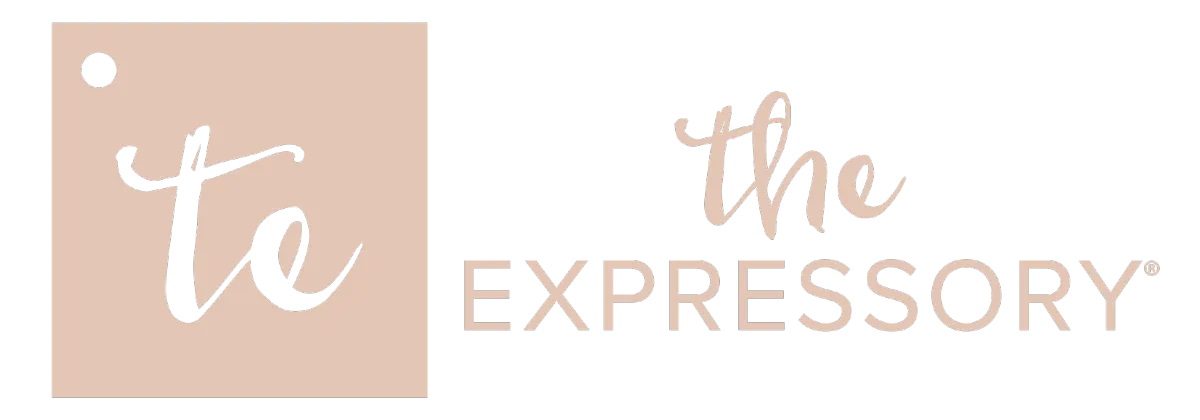
What Swimming Teaches Us About Team Relationships
In my latest video, I break down how swimming teaches us the importance of these relationship-building efforts and the specifics of what we as leaders need to nurture with our teams.
Holiday Gift Insights - What Everyone Else Is Doing
In an effort to simplify the decision-making process, we're sharing some of the trends we've seen with gifting over the years. We're even sharing our best seller and why that gift had such success.
What Makes A Successful Holiday Gift? The Travel Bag Edition
Last year we had the opportunity to work with one of our clients in the travel and tourism space to design an experience that delivered their highest engagement yet.

The Cost of Overlooking Prospects and Partners
Picture this: A business celebrates a long-standing client with a thoughtful gift. A handwritten note goes out to a star employee for their contributions. Internally, the leadership team prides itself on fostering a culture of appreciation. And yet—when it comes to the prospects they hope to convert and the strategic partners who could be opening new doors, silence.
It’s not intentional. It’s not even recognized as an issue. But it’s happening in businesses everywhere.
Our new market research reveals a striking pattern:
84% of businesses show care for their current clients.
70% prioritize care for their employees.
Only 64% extend care to prospects.
Even fewer—56%—prioritize their strategic partners.
That means nearly half of businesses are failing to nurture the very relationships that could bring them new revenue, referrals, and long-term stability.
And that’s a problem.
We know that people do business with those they trust. But trust isn’t built at the point of transaction—it’s built before the first contract is signed. It’s reinforced in the moments between projects. If businesses continue to overlook these critical groups, they’re not just missing out on immediate revenue; they’re weakening their entire foundation for sustainable growth.
What’s Really Happening?
The results of this study show a major blind spot: Companies default to showing care to those already in their ecosystem—their existing clients and employees. That makes sense. It’s easier to engage with people you already know, those who are actively contributing to your revenue or operations.
But businesses are transactional by default when it comes to prospects and strategic partners. These groups only seem to get attention when there’s an answer:
Prospects are nurtured through sales calls, marketing emails, and conversion strategies. They don’t often get appreciation until after they sign on the dotted line.
Strategic partners are expected to refer without the same level of care and connection that clients receive.
This approach assumes that a simple exchange of value—money for service, referrals for referrals—is enough. But what’s missing is the human connection that transforms these relationships from functional to foundational.
Think about the last time you received an unexpected thank-you from someone you hadn’t officially done business with yet. Or a partner who took time to check in with you, not just because they needed something, but because they genuinely cared. Those moments stick. They change the way we see the relationship. And they make us want to engage further.
Businesses that understand this are the ones that build true loyalty—not just from clients, but from everyone in their orbit.
Why Does This Matter for Growth?
A business that only nurtures relationships after they become revenue-producing is working twice as hard for half the results.
Prospects who feel valued before they buy are more likely to convert, faster.
Strategic partners who feel seen and appreciated are more likely to send high-quality referrals.
This isn’t just about “being nice.” It’s about leveraging relationship psychology to create trust, credibility, and desire to engage, without it feeling forced or transactional.
In Relationship-First Strategic Engagement, I emphasize the importance of Perceived Partner Responsiveness. the idea that people stay engaged when they feel understood, validated, and cared for. It applies not just to clients, but to every relationship that fuels business growth.
Without that responsiveness, prospects feel like just another number in a funnel. Partners feel like they’re being used. And businesses lose opportunities before they even realize they were on the table.
The Shift: Treating Prospects & Partners Like VIPs
If businesses truly want to drive more conversions and referrals, they need to rethink who gets their attention and when. The best companies understand that relationships start long before the sale and continue long after.
Some shifts to consider:
Move from “chasing” to “attracting.” Instead of treating prospects like targets, build rapport and trust with thoughtful engagement—before they buy. A handwritten note, a well-timed gift, or even an introduction to someone valuable in their industry can make a lasting impression.
Show strategic partners you see them. Referral partners aren’t just lead generators, they’re people with businesses, challenges, and successes of their own. Recognizing and celebrating their wins fosters reciprocity in a way that “just checking in” never will.
Replace “follow-ups” with genuine connection. Instead of “just following up” with a prospect, ask about their latest milestone. Share something of value. Make the interaction about more than the potential deal.
At The Expressory, we’ve seen firsthand how these small actions create exponential results. A company that took the time to send non-sales-related resources to prospects saw a return of 10x of their investment. A business that implemented pre-meeting touchpoints for referral partners saw their inbound leads increase.
It’s not magic, it’s the power of being human in a business world that often forgets to be.
Five Questions Every Business Leader Should Ask Now
If your business growth feels slower than it should be, it might be time to look at how you’re nurturing all your relationships. Consider these five questions:
Are we prioritizing prospects only when they’re about to buy?
– If you’re only showing care once they hit the late stage of the sales cycle, you’re likely losing trust before they even reach that point.How often do we acknowledge and appreciate our strategic partners?
– If partners only hear from you when you need a referral, they won’t feel invested in your success.Do we have a system for making people feel valued before they enter our client list?
– Whether it’s a thoughtful touchpoint, a meaningful introduction, or a simple check-in, these small moments create trust.What percentage of our engagement efforts go to non-paying relationships?
– If 90% of your efforts go to clients and employees, you’re likely missing critical opportunities in your pipeline.Are we modeling the kind of relationships we want in return?
– If you want trust, loyalty, and reciprocity, start by giving it. People remember how you made them feel.
Businesses thrive on relationships. But relationships don’t start at the point of sale, and they don’t grow in a transactional environment.
The companies that win aren’t just the best at their service, they’re the best at making people feel seen, valued, and connected. They understand that care isn’t just a retention strategy, it’s a conversion and growth strategy.
The question now is: How will you start showing up differently for the relationships that could change your business?
At The Expressory, we help businesses turn relationship-building into a strategic advantage. If you’re ready to explore how this could work for your brand, let’s talk.
Join one of our upcoming community Q&As or schedule a call to dive deeper into a relationship-first approach that drives results.
Address:
1500 S. Sylvania Ave #106
Sturtevant WI 53177
Phone:
414.243.8971

